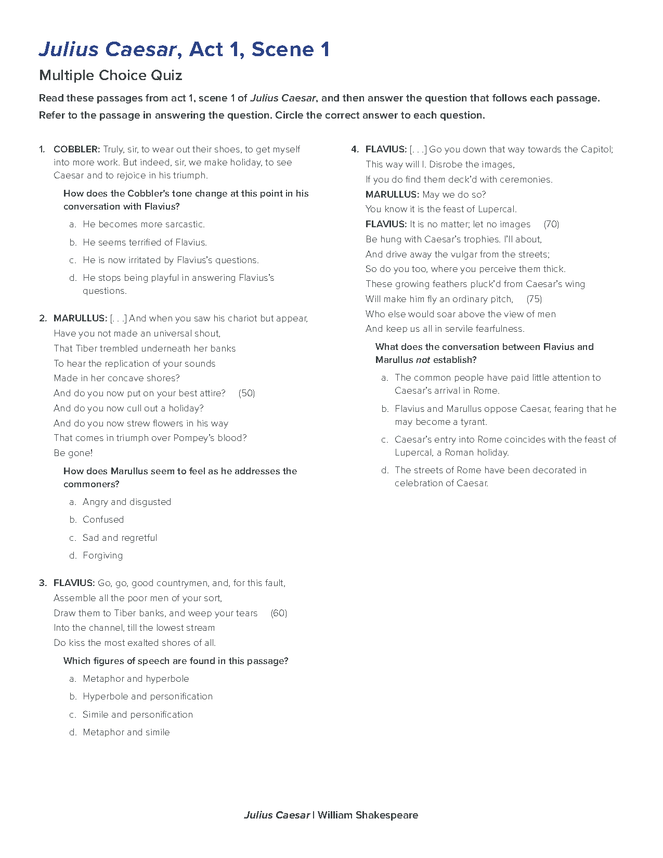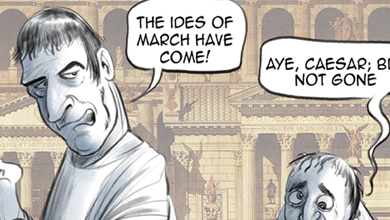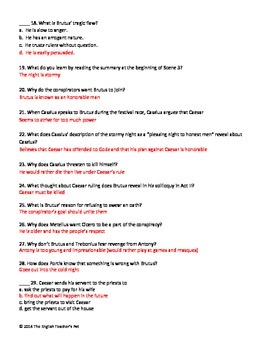

Whether using a handshake to wordlessly seal conspiracy, rearing a knife in an assassination, or being emotionally and politically manipulative through gesticulation, Shakespeare's play reveals not only how hands can alter the course of history, but how such theatrical practices themselves aid and abet such a diversion. The very deniability of gesture ensures the continuance of misdeeds and malpractices. The agency of gesture is all the more potent for its ephemerality: hands continually write and rewrite the script of the political moment on air that leaves no trace of itself. It is my contention in this piece that gestures are embodied social metaphors: they are the epitome of the political as personal, and vice versa. I look at the gesture of hand-shaking and its supposed connections with the quality of constancy, and the use of hands in the assassination of Caesar the use of reported gestures and what it means in terms of both performance and sincerity and the ways that rhetorical gesture is used to convince a crowd of people, with consideration given to the Puritan fears of theatricality. This article explores the manipulative power of gesture and the parallels Shakespeare draws with the performance of politics within the Roman society he presents in Julius Caesar, as well as its application to Elizabethan England. This study aims to reread Shakespeare's Julius Caesar on the basis of political context with reference to two contemporary political concepts: deep state and parallel state. In his Roman tragedies, Shakespearescripted many ideas, probabilities and prophecies about the concepts of state and politics, which seem to belong to our own modern times. Shakespeare's plays are a storehouse for such probabilities and prophecies. Instead of speaking about specific events describing the way they occur, Shakespearean plays reveal truths behind the so-called and perceived truths, not what is visible but what is invisible, not what happens but what could happen, focusing on historical, political and sociological probabilities and prophecies. The strong relationship between drama and political sciences is another factor for Shakespeare adaptations and appropriations. Re-reading of Shakespeare has undergone significant transformations in the last few decades, for Shakespeare's plays always have something to say about the time they are read. Hence, this study deals with the role of perception operation/management in Brutus' manipulating attempts at political resistance to Julius Caesar's ruling, which paved the way for Caesar's assassination. This study argues that one of these concepts is perception operation/management which Shakespeare uses in Julius Caesar as a means of political and ideological propaganda in the same way as is used in the contemporary real world, which creates a close association between the play's original context and contemporary political context through contemporary interpretations. In such political and ideological environments, analysing polyphonic discourses and dialogues, critical readers can come up with some political and ideological concepts to analyse and explain the ways things happen and the reasons for why they happen. In Shakespeare's theatrical environments, his characters play their political and ideological roles in a way similar to what happens in the real world politics.

Within the contexts set by New Historicism and Cultural Materialism, Shakespeare's plays, through polyphonic discourses and dialogues, create environments constructed in the relationships of his characters with one another and with the society on the basis of political and ideological considerations.


Contemporary Shakespeare studies have gained a new perspective and created an unprecedented synergy in dramatic criticism with the introduction of Cultural Materialism and New Historicism as critical theories.


 0 kommentar(er)
0 kommentar(er)
